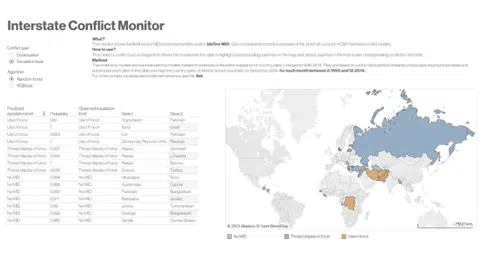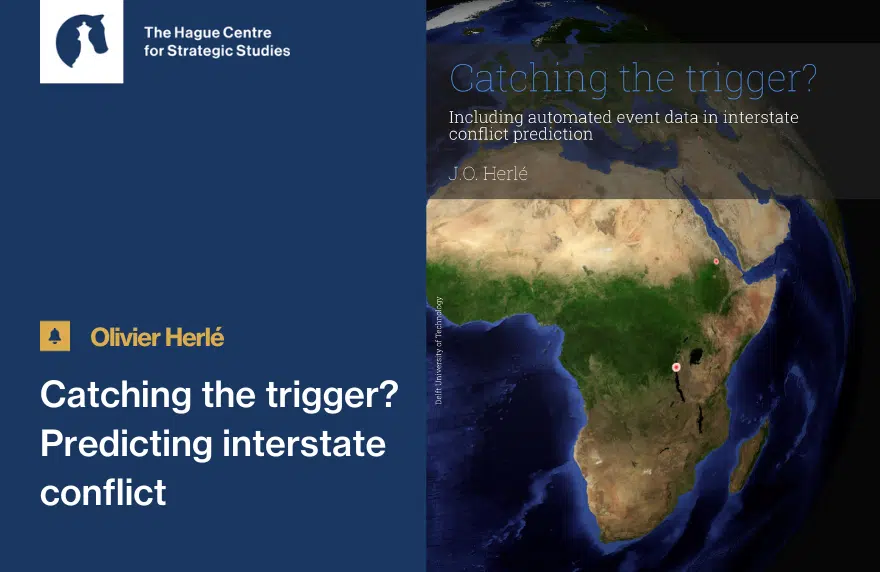Is it possible to predict conflict? Can we assess the likelihood that hostilities will break out between nations? Delving into these questions, MSc student Olivier Herlé joined us at HCSS under the supervision of Tim Sweijs for a thesis project in a collaboration between the TU Delft’s Faculty of Technology, Policy and Management and the HCSS Datalab. At the Datalab, Olivier’s model is part of a wider initiative to systematically identify and predict the drivers of conflict.
Interstate conflict has once again come into the limelight, and the capacity for foresight is crucially important. The Russian invasion in Ukraine and the tensions in the Indo-Pacific are the most prominent examples of this renewed attention, but the need for early warning extends to other conflicts as well, which might otherwise escape our gaze.
“We can predict conflict occurrence as well as the highest level of escalation experienced with reasonable accuracy”
This project uses a machine learning approach to predict interstate conflict at a monthly level. Based on historical data, we provide probabilities for the onset, occurrence, and the highest level of escalation experienced during a conflict. We do so for all country pairs on a global scale. The input data are a mix of slow-changing variables, such as nuclear weapons possession or regime type, as well as scraped news stories which provide temporally disaggregated information. On these input data, we use decision tree ensemble algorithms to classify monthly interactions as either conflictuous or peaceful.
We were able to score some successes in this endeavour. On a curated dataset of conflicts, we can predict conflict occurrence, as well as the highest level of escalation experienced, with reasonable accuracy, but actual conflict onset proves more challenging. This partial success underlines the potential for policymaking that early warning systems offer, and we will continue to improve and expand our conflict models, here at HCSS.
Would you like to know more? Please visit the HCSS Datalab website.

The thesis report can be found at the TU Delft repository.




